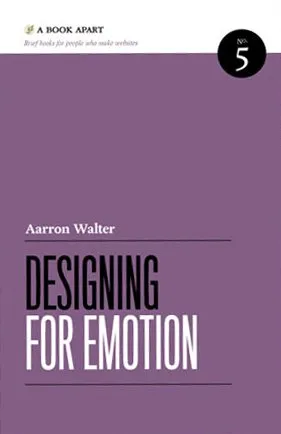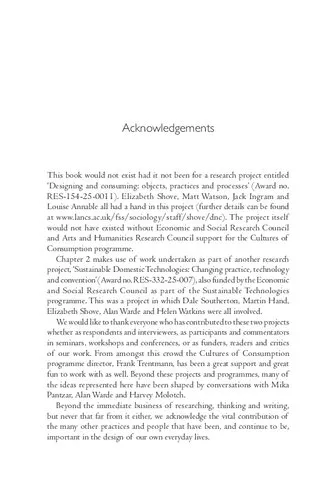Crowd Design: From Tools for Empowerment to Platform Capitalism
4.0
Reviews from our users

You Can Ask your questions from this book's AI after Login
Each download or ask from book AI costs 2 points. To earn more free points, please visit the Points Guide Page and complete some valuable actions.Related Refrences:
Introduction to "Crowd Design: From Tools for Empowerment to Platform Capitalism"
In today's digital economy, creative collaboration has been transformed by the rise of platforms that connect global talent pools with clients and companies seeking innovative solutions. My book, "Crowd Design: From Tools for Empowerment to Platform Capitalism", explores the complex dynamics at the heart of this transformation. It delves into the promises and pitfalls of crowd-based creative work, uncovering how once-promising tools of democratization and empowerment have increasingly been co-opted by the machinery of platform capitalism.
This book is a vital contribution to understanding the intersections of technology, design, and labor in an era defined by crowdsourcing. From passionate amateurs and independent creatives to global corporations, no one remains untouched by these massive shifts in how creative work is organized and monetized. With a critical lens, I examine both the opportunities and challenges this emerging system brings to the design profession and society at large.
Detailed Summary of the Book
"Crowd Design" traces the evolution of creative collaboration in the context of crowdsourcing platforms, from their origins to their current impact on society. Crowdsourcing—once heralded as a way to empower individual creators, foster innovation, and democratize design—has grown into a multibillion-dollar industry dominated by a handful of corporate entities. These platforms promise freedom and flexibility but often deliver precarious working conditions and a new layer of exploitation for creatives.
The book is divided into several interlinked sections, each exploring a different facet of crowd design. Starting with a historical overview, I contextualize the rise of crowdsourcing in the broader history of design and innovation. From there, the book investigates the tools and mechanisms originally meant to empower creators, analyzing how they were gradually folded into the profit-driven motives of platform capitalism.
A central focus is placed on the promises that design platforms make to both creators and clients. Are they truly democratizing access to design? Are they providing fair opportunities for creatives to thrive? Or are they perpetuating inequalities under the guise of progress? Equipped with case studies, insights from industry leaders, and testimonials from designers themselves, the book paints a nuanced picture of this complex, often contradictory industry.
Key Takeaways
- Crowdsourcing platforms have redefined design, offering new opportunities but also introducing systemic exploitation of creative labor.
- Original tools for empowerment can become mechanisms for corporate control when integrated into platform capitalism.
- The interplay between technology, labor, and economics is reshaping the boundaries of the design profession.
- Designers must navigate challenges like low pay, lack of job security, and unfair competition while pursuing creative careers in new digital landscapes.
- Examining the case studies in the book reveals the hidden costs of "democratized" design, especially for those working in marginalized global contexts.
Famous Quotes from the Book
"The promise of empowerment will always be enticing, but it is vital to ask: empowerment for whom, under whose terms, and at what cost?"
"Crowd design challenges traditional notions of authorship and originality, transforming design from the work of the few to the labor of the many."
"In the end, platform capitalism thrives not because it creates value for everyone, but because it harvests value from those left most vulnerable."
Why This Book Matters
As the global economy continues to shift toward a knowledge and creative-based paradigm, understanding the forces behind crowdsourcing and design platforms becomes essential.
This book matters because it peels back the surface-level promises of empowerment, mobility, and access. It provides readers with a critical framework for analyzing these platforms and understanding their broader implications for labor, equality, and the future of design professions. Whether you are a designer, a technology enthusiast, an academic, or simply someone intrigued by the future of work, "Crowd Design" is a crucial resource.
By fostering an informed dialogue about the promises and perils of crowd design, this book aims to inspire creators, policymakers, and platform developers to imagine fairer, more equitable futures for creative work.
Free Direct Download
You Can Download this book after Login
Accessing books through legal platforms and public libraries not only supports the rights of authors and publishers but also contributes to the sustainability of reading culture. Before downloading, please take a moment to consider these options.
Find this book on other platforms:
WorldCat helps you find books in libraries worldwide.
See ratings, reviews, and discussions on Goodreads.
Find and buy rare or used books on AbeBooks.
1280
بازدید4.0
امتیاز0
نظر98%
رضایتReviews:
4.0
Based on 0 users review
Questions & Answers
Ask questions about this book or help others by answering
No questions yet. Be the first to ask!















